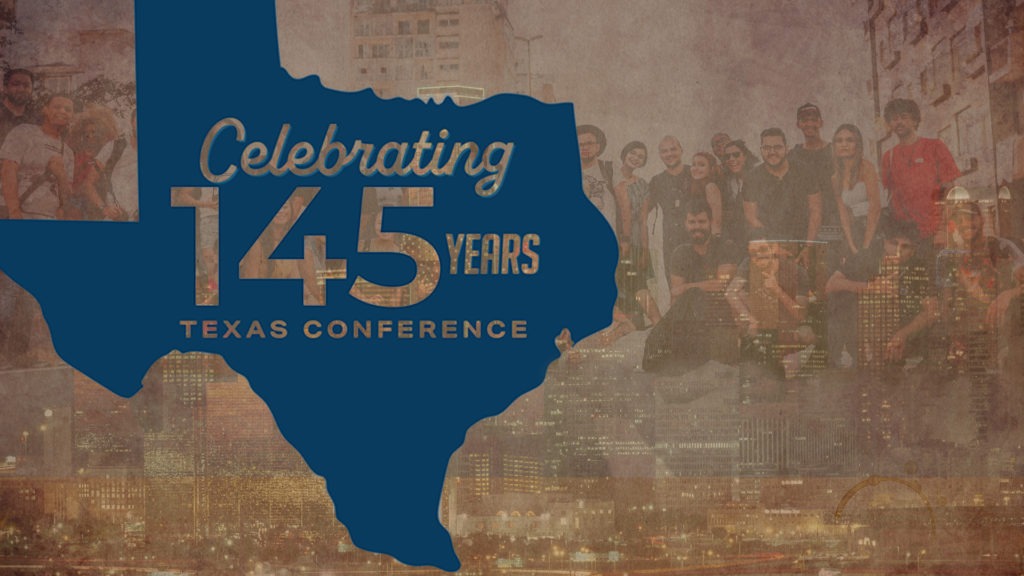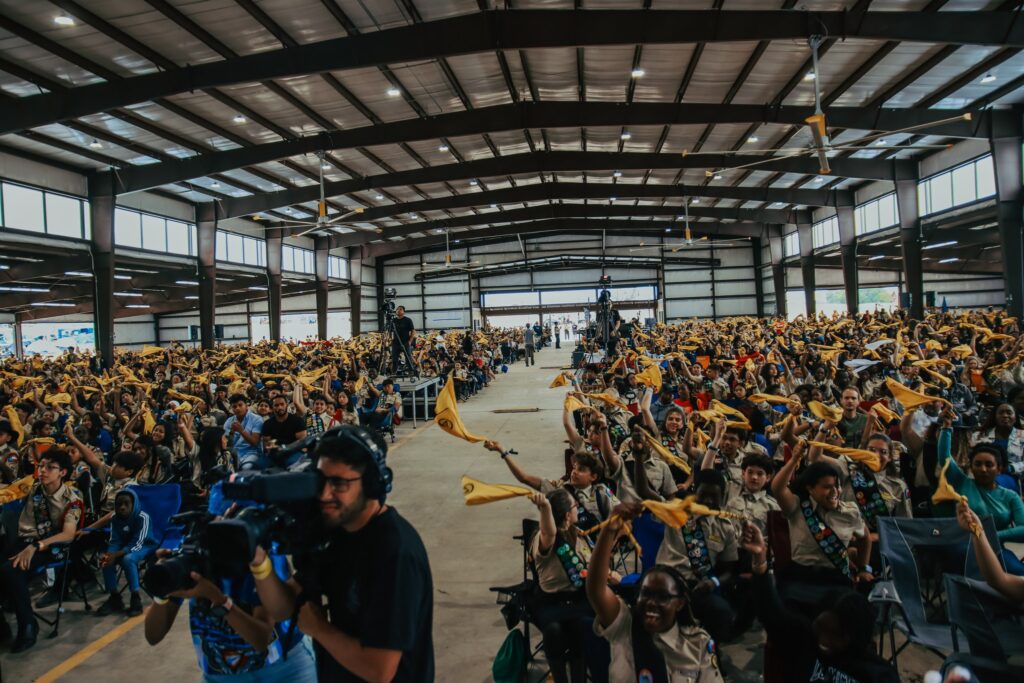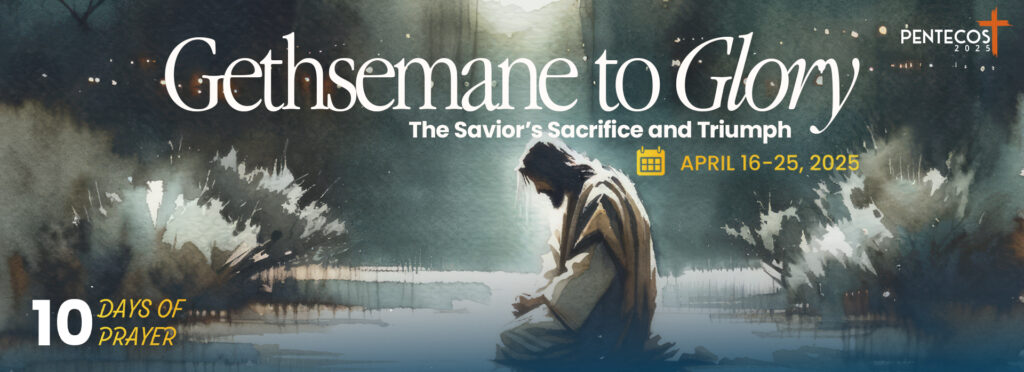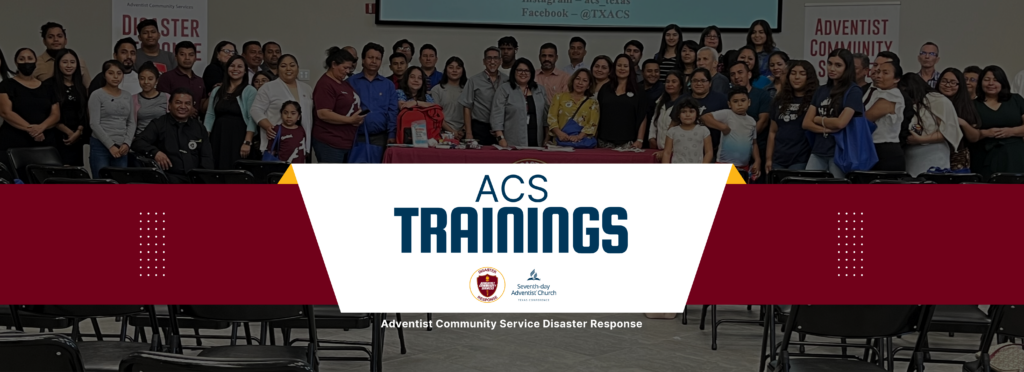Three brothers—John E., E. G., and A. B. Rust—brought the Seventh-day Adventist message to Texas in 1875. The following year, D. M. Canright’s meetings resulted in the state’s first Seventh-day Adventist baptism. Canright estimated that about 60 Sabbath-keepers were scattered throughout the state.
Seeing the interest in Texas, James and Ellen White spent several months in the Plano and Denison areas in 1878 and 1879. James White, General Conference of Seventh-day Adventists president at the time, reported, “During the camp meeting [held Nov. 12-19, 1878, in Plano, Texas] thirteen people were baptized, the Texas Conference [of Seventh-day Adventists] was formed, and aggressive plans were laid for tent evangelism…”
By 1890, conference membership was 425, with two ordained ministers and four licensed ministers. Three years later, Texas Conference officials purchased 800 acres of land in Johnson County for a Texas training school (now Southwestern Adventist University). On Jan. 6, 1894, a church organized with 60 charter members, and a year later, the United States Postal Service named the settlement Keene.
By 1900, the Texas Conference boasted 1,294 members. Eight years later, 100 western counties of Texas, with 261 members, separated from the Texas Conference and became the West Texas Mission. The mission was organized in 1909 as the West Texas Conference and in 1916 became part of the Texico Conference of Seventh-day Adventists. Between 1909 and 1913, W. F. Mayer conducted colporteur work among the Lower Rio Grande Valley Hispanic population.
The Texas Conference divided again in 1910. The northeastern part of the state included 21 churches, 1,336 members and 10 church buildings. In 1911, it was renamed the Northeast Texas Conference (later changed to North Texas Conference), with headquarters in Keene. The state’s southern portion, with 257 members, separated as the South Texas Mission Field and organized as the South Texas Conference at San Antonio in 1911.
In 1912, the North Texas Conference operated seven evangelistic tents, organized seven new churches and conducted four camp meetings, including one for African Americans.
By 1916, two Hispanic churches organized with a membership of 43. During the 1920s, the North Texas and South Texas conferences conducted large-scale citywide evangelistic campaigns. In 1923, 56 new Hispanic converts gave the South Texas Conference the largest number of Hispanic members of any conference in the United States. In 1925, nearly half of the total members attending the South Texas camp meeting were of Mexican heritage, and by 1930, the Hispanic membership reached 200.
In 1932, the South Texas and North Texas conferences recombined to form the Texas Conference, with 2,950 members. Between 1943 and 1951, Seventh-day Adventist evangelists conducted campaigns in Dallas, Houston, San Antonio and Fort Worth. Seventeen new churches and eight new church schools organized.
In July 1959, Texas Conference President B. E. Leach launched an intensive program, Operation Lone Star, to advance every phase of the work. By 1963, the conference under this program had held 450 evangelistic meetings and welcomed 2,066 persons into the church, bringing the conference membership to 8,000. In six years (through 1965), 27 new churches organized and the conference carried on active evangelism in 37 unentered regions.
B. L. Roberts, director of the conference’s Spanish Department (later renamed Hispanic Ministries), reported that 923 people joined the Spanish-speaking churches in 1990, more than half of the total new members (55% of 1,673) for the year. In 2019, the Texas Conference Hispanic membership surpassed 28,000, the largest of any conference in the North American Division of Seventh-day Adventists.
The Texas Conference’s expanding work is driven by its mission “to empower members, pastors, churches and schools in our territory to share the gospel message with their friends and communities.” As of August 2023, the Texas Conference includes 67,035 members and 358 congregations.
As author Ellen G. White says, “In reviewing our past history, having traveled over every step of advance to our present standing, I can say, Praise God! As I see what God has wrought, I am filled with astonishment, and with confidence in Christ as leader. We have nothing to fear for the future except as we shall forget the way the Lord has led us, and His teaching in our past history.” Testimonies to Ministers and Gospel Workers, p. 31.
We, too, can praise God for what He has done in the Texas Conference. Together As One, we look to the future with hope as we acknowledge how He has led us in the past. United we stand, focused on sharing the gospel with everyone around us.
You can find more information about the Texas Conference history at TexasAdventist.org/History.
—
By Brody Woodard, pastor of the Henderson, Jefferson Central and Longview Seventh-day Adventist Churches.
A version of this article will appear in the November/December 2023 issue of the Southwestern Union Record.







